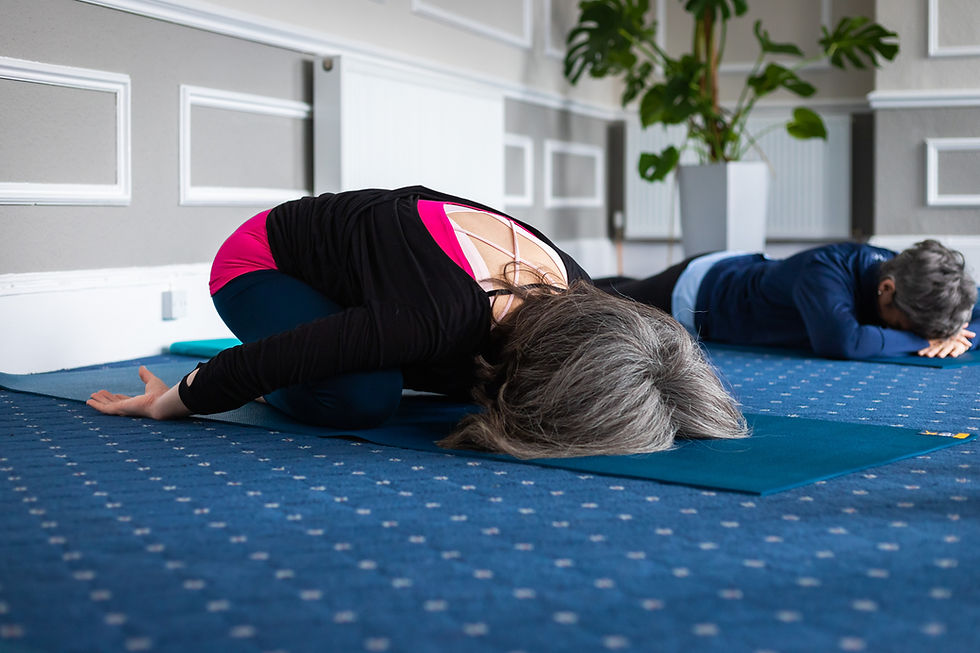As Much As Necessary, As Little As Possible
- Hazel Commane

- Nov 14, 2024
- 2 min read
You might have seen our poster with As Much As Necessary, As Little As Possible on your way into the studio, or heard me use this phrase in class. What does it mean?
Pilates is about efficiency. Efficiency is “the ratio of useful work performed to the total energy expended.” In the world of machinery, an efficient system is one that delivers the best results with minimal wasted effort. How does this relate to the human body?
Imagine trying to drive a car with the handbrake on. The car would be slow, inefficent and the car suffers unnecessary strain. The obvious solution isn’t to push harder on the accelerator but to take a moment to notice the situation, and take the handbrake off. Yet, in the realm of traditional fitness, many exercises are the equivalent of flooring the gas with the handbrake still on. Straining and over recruiting muscles that aren’t needed results in inefficient movement, creates imbalances in the system over time and increases the likelihood of injury.

Why Efficiency Matters in Movement
To move efficiently is to achieve the same outcome using fewer muscles, conserving energy, and reducing wear on the body. The key is to focus on what muscles are necessary for a given movement and quiet those that aren't. This is where the wisdom of Polestar Pilates founder, Brent Anderson, comes in: “As much as necessary, as little as possible.” This idea highlights the importance of using only the energy you need to perform an action—no more, no less.
When energy isn’t directed toward productive work, it becomes wasteful, leading to strain and overuse injuries. It’s not a problem if inefficient movement happens once or twice. But if repeated, practiced, and reinforced, it becomes ingrained, leading to chronic issues. The central nervous system (CNS) is wired to make movement patterns more efficient over time, even unconsciously. This means that poor-quality movement, if practiced, becomes the body’s default, and inefficiencies turn into habits.
Quality Over Quantity: The Importance of Mindful Practice
It’s often said that practice makes perfect, but this isn’t entirely true. Only “perfect practice makes perfect.” The quality of attention given to your movements matters. When dedicating time to exercise or any movement practice, focusing on proper and efficient movement is essential. It’s not just about going through the motions; it’s about doing so with intention to promote long-term strength and mobility without pain or injury.
Pilates reformer training is an ideal way to hone efficient movement patterns. The guided, mindful nature of Pilates helps retrain your body to move in the most energy-effective way possible, supporting your journey to long-lasting physical health and resilience. The precision of each exercise encourages the CNS to adopt efficient, sustainable movement habits, aligning with the philosophy of “as much as necessary, as little as possible.”
Take a moment to reassess how you move. Is there tension where there doesn’t need to be? Are you using more effort than necessary? Releasing those “hand brakes” in your body can mean the difference between pushing harder and moving smarter. Through dedicated, mindful practice like Pilates, discover what it feels like to achieve strength, ease, and efficiency in every movement.



Comments